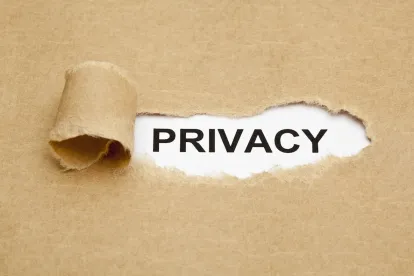On January 25, 2019, the Illinois Supreme Court handed down a significant decision concerning the ability of individuals to bring suit under the Illinois Biometric Information Privacy Act (BIPA). In short, individuals need not allege actual injury or adverse effect, beyond a violation of his/her rights under BIPA, in order to qualify as an “aggrieved” person and be entitled to seek liquidated damages, attorneys’ fees and costs, and injunctive relief under the Act. Potential damages are substantial as the BIPA provides for statutory damages of $1,000 per negligent violation or $5,000 per intentional or reckless violation of the Act. To date, no Illinois court has interpreted the meaning of “per violation,” but the majority of BIPA suits have been brought as class actions seeking statutory damages on behalf of each individual affected.
If they have not already done so, companies should immediately take steps to comply with the statute. That is, they should review their time management, point of purchase, physical security, or other systems that obtain, use, or disclose biometric information (any information, regardless of how it is captured, converted, stored, or shared, based on an individual’s retina or iris scan, fingerprint, voiceprint, or scan of hand or face geometry used to identify an individual) against the requirements under the BIPA. In the event they find technical or procedural gaps in compliance – such as not providing written notice, obtaining a release from the subject of the biometric information, obtaining consent to provide biometric information to a third party, or maintaining a policy and guidelines for the retention and destruction of biometric information – they need to quickly remedy those gaps. For additional information on complying with the BIPA, please see our BIPA FAQs.
Companies were hoping that the Illinois Supreme Court would ultimately conclude, consistent with the underlying appellate decision, that in order for a plaintiff to bring a claim under the BIPA (i.e. in order for the plaintiff to be considered “aggrieved”) the plaintiff would have to allege actual harm or injury, and not just a procedural or technical violation of the statute. In reversing and remanding the case, the Illinois Supreme Court held:
The duties imposed on private entities by section 15 of the Act (740 ILCS 14/15) regarding the collection, retention, disclosure, and destruction of a person’s or customer’s biometric identifiers or biometric information define the contours of that statutory right. Accordingly, when a private entity fails to comply with one of section 15’s requirements, that violation constitutes an invasion, impairment, or denial of the statutory rights of any person or customer whose biometric identifier or biometric information is subject to the breach. Consistent with the authority cited above, such a person or customer would clearly be “aggrieved” within the meaning of section 20 of the Act (740 ILCS 14/20) and entitled to seek recovery under that provision. No additional consequences need be pleaded or proved. The violation, in itself, is sufficient to support the individual’s or customer’s statutory cause of action.
The decision is likely to increase the already significant number of suits, including putative class actions, filed under the BIPA. In the words of the Illinois Supreme Court, “[c]ompliance should not be difficult; whatever expenses a business might incur to meet the law’s requirements are likely to be insignificant compared to the substantial and irreversible harm that could result if biometric identifiers and information are not properly safeguarded; and the public welfare, security, and safety will be advanced.”





 />i
/>i

